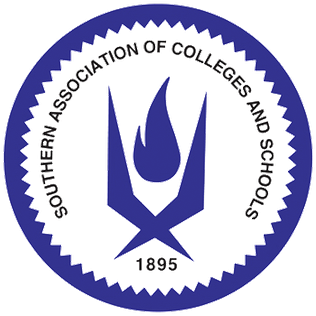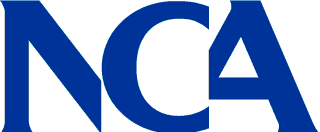
Tertiary education, also referred to as third-level, third-stage or post-secondary education, is the educational level following the completion of secondary education. The World Bank, for example, defines tertiary education as including universities as well as trade schools and colleges. Higher education is taken to include undergraduate and postgraduate education, while vocational education beyond secondary education is known as further education in the United Kingdom, or included under the category of continuing education in the United States.
Higher education in Mauritius includes colleges, universities and other technical institutions. Public university education has been free to students since 2019. The sector is managed by the Higher Education Commission (HEC) which has the responsibility for allocating public funds, and fostering, planning and coordinating the development of post-secondary education and training. Formerly the Tertiary Education Commission, in 2020 it was reformed into the HEC and a separate Quality Assurance Authority (QAA) for auditing of qualifications.

The Southern Association of Colleges and Schools (SACS) is an American educational accreditor recognized by the United States Department of Education and the Council for Higher Education Accreditation. This agency accredits over 13,000 public and private educational institutions ranging from preschool to college level in the Southern United States. Its headquarters are in North Druid Hills, Georgia, near Decatur, in the Atlanta metropolitan area.

The North Central Association of Colleges and Schools (NCA), also known as the North Central Association, was a membership organization, consisting of colleges, universities, and schools in 19 U.S. states engaged in educational accreditation. It was one of six regional accreditation bodies in the U.S. and its Higher Learning Commission was recognized by the United States Department of Education and the Council for Higher Education Accreditation (CHEA) as a regional accreditor for higher education institutions.
The New England Association of Schools and Colleges, Inc. is an American educational organization that accredits private and public secondary schools, primarily in New England. It also accredits international secondary schools and, less frequently, high schools in other U.S. states.

Education in Botswana is provided by public schools and private schools. Education in Botswana is governed by the Ministries of Basic Education. and Tertiary, Research Science and Technology Among sub-Saharan African countries, Botswana has one of the highest literacy rates. According to The World Factbook - Central Intelligence Agency as of 2015, 88.5% of the population age 15 and over can read and write in Botswana were respectively literate.

The Northwest Commission on Colleges and Universities (NWCCU) is an independent, non-profit membership organization recognized by the United States Department of Education since 1952 as an institutional accreditor for colleges and universities.
The Higher Learning Commission (HLC) is an institutional accreditor in the United States. It has historically accredited post-secondary education institutions in the central United States: Arizona, Arkansas, Colorado, Illinois, Indiana, Iowa, Kansas, Michigan, Minnesota, Missouri, Nebraska, New Mexico, North Dakota, Ohio, Oklahoma, South Dakota, West Virginia, Wisconsin, and Wyoming. The headquarters of the organization is in Chicago, Illinois.

Education in Mauritius is managed by the Ministry of Education & Human Resources, which controls the development and administration of state schools funded by government, but also has an advisory and supervisory role in respect of private schools. The Tertiary education is maintained by the Ministry of Tertiary Education, Science, Research and Technology. The government of Mauritius provides free education to its citizens from pre-primary to tertiary levels. Since July 2005, the government also introduced free transport for all students. Schooling is compulsory up to the age of 16. Mauritian students consistently rank top in the world each year for the Cambridge International O Level, International A and AS level examinations. Among sub-Saharan African countries, Mauritius has one of the highest literacy rates. The adult literacy rate was at 91.9% in 2022. According to the 2022 census, the proportion of people with higher education has increased to 8.8%. Mauritius was ranked 57th in the Global Innovation Index in 2023, 1st in Africa.
The University of Missouri High School (MU High School) is a distance-learning K-12 high school administered by the University of Missouri, a public state university located in Columbia, Missouri and the flagship of the University of Missouri System. The program was founded in 1999 as part of the university's Center for Distance and Independent Study (CDIS). Its mission is to provide learning opportunities in addition to traditional high schools. The school offers more than 150 courses by certified Missouri teachers, from the elementary through high school levels. Each year thousands of students enroll in high school to succeed in their home high schools and other settings.

Education in Victoria, Australia is supervised by the Department of Education and Training, which is part of the State Government and whose role is to "provide policy and planning advice for the delivery of education". It acts as advisor to two state ministers, that for Education and for Children and Early Childhood Development.
Higher education accreditation in the United States is a peer review process by which the validity of degrees and credits awarded by higher education institutions is assured. It is coordinated by accreditation commissions made up of member institutions. It was first undertaken in the late 19th century by cooperating educational institutions, on a regional basis.
Educational accreditation is a quality assurance process under which services and operations of educational institutions or programs are evaluated and verified by an external body to determine whether applicable and recognized standards are met. If standards are met, accredited status is granted by the appropriate agency.
Cognia is a non-profit, non-governmental organization that accredits primary and secondary schools throughout the United States and internationally.
Higher education accreditation is a type of quality assurance process under which services and operations of post-secondary educational institutions or programs are evaluated to determine if applicable standards are met. If standards are met, accredited status is granted by the agency.
The Northwest Accreditation Commission (NWAC), formerly named the Northwest Association of Accredited Schools, is a non-governmental organization that provides accreditation to educational institutions in the Northwestern United States. The Commission accredits K–12, elementary, middle, and high schools; those offering distance education; non- degree-granting postsecondary institutions; and special purpose, supplementary education, travel education, and trans-regional schools in seven states in the northwestern United States. Formerly an independent entity based in Boise, Idaho, it is now a division of AdvancED.






